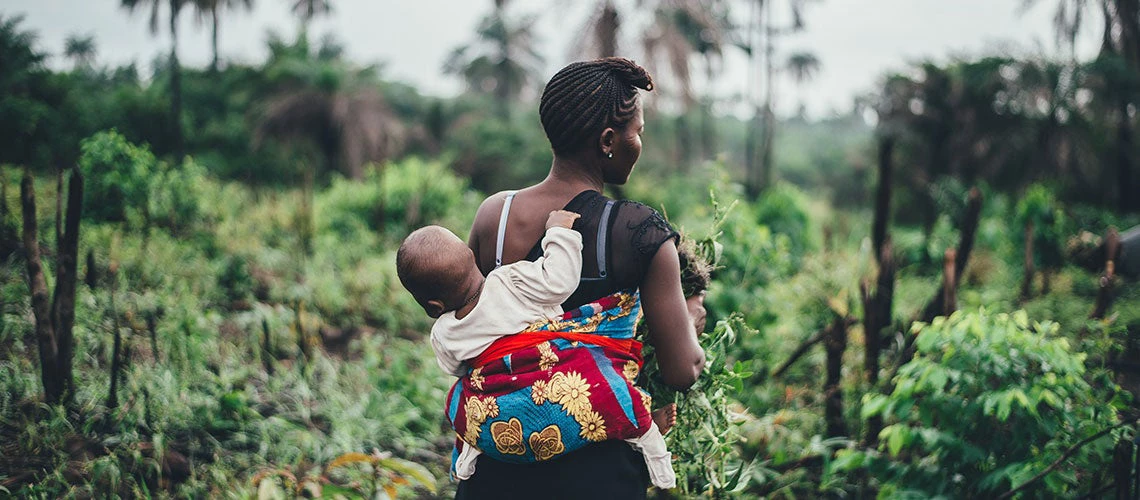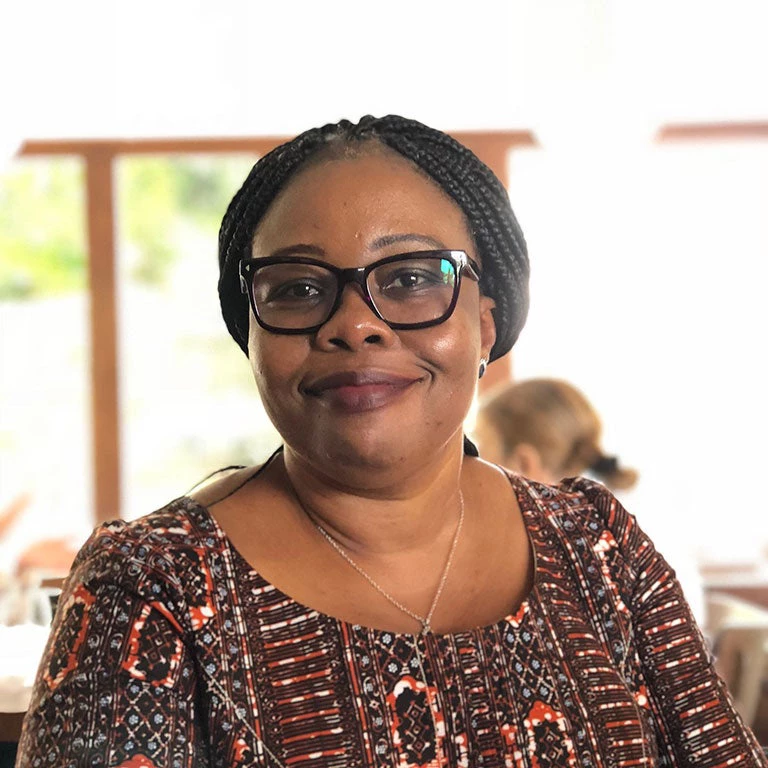 Indigenous female farmer combining childcare and farming activities.
Indigenous female farmer combining childcare and farming activities.
This blog post is part of a series focused on women’s voices from the grassroots and their experiences fighting for and securing land rights for women. This blog post was originally published by Place, an initiative by the Thomson Reuters Foundation.
From farms to towns, women are a major provider of food and food security for their families, but women in half of the world still struggle to access their equal land and property rights in spite of legal protections.
Meet Regina from Ghana. Regina is a 36-year-old woman living in a suburb of Accra, the capital of Ghana. She has been living with a man for the past four years, they are not married but have a son together.
In Ghana, performing the customary marriage rites and proceeding to register the marriage are important steps to secure a woman’s place in a man’s home. It is the man who has to take this step. Regina has been pushing her partner to perform these rites but has not yet succeeded. Meanwhile, Regina kept supporting him, including making financial contributions to the purchasing of land for building a house.
As a woman, Regina has equal rights under the law, to acquire and possess rights to land that she has acquired on her own or jointly with another person.
However, to secure her rights, Regina’s name must appear on the land documents. This is important because, even when a woman acquires a property all by herself while living with her partner, society often assumes that he owns the property. Thus, even though the law recognizes women’s equal rights, the dynamics in household relations influence how much a woman is able to exercise those rights in reality.
With Regina’s support, her partner was able to acquire and register the land – in his name alone. As a result, he exercises all the control over the property, leaving Regina in a very precarious situation.
After years of staying together, Regina’s partner continued to refuse to perform the marriage rites - instead, he has married another woman. Regina, now a single mother, has asked her ex-partner to return the contribution she made toward the acquisition and registration of the parcel of land or divide it into two and give her a portion.
Is it fair for Regina to ask for her money back? If so, where can Regina receive support to compel the man to repay her money or give her a portion of the land parcel?
Many have told Regina to seek legal advice. The amount she is seeking to retrieve is the equivalent of $1,200. This represents all of her savings, which she cannot afford to lose. She could go to court, but the cost of seeking legal redress will be more than the amount she is trying to retrieve. Regina is stuck.
Legal aid or grievance redress mechanism: which way?
To support people like Regina who have no financial capacity to procure legal services on their own, legal aid services have been put in place by both the state and some non-state organizations such as the International Federation of Women Lawyers Ghana (FIDA-Ghana).
On a few occasions, cases that are presented in such places have been determined and relief granted to the victims. But cases on land rights are different. They are not just legal in nature, they have socio-cultural dimensions. They are also very technical and specialized. To secure her interest in the land parcel, Regina needs an established mechanism that can defend her based on an understanding and appreciation of the different dimensions of her case and a resolution that will allow her to enjoy the use of the property without fear.
Many legal aid arrangements have done tremendously well in cases of defilement, rape, assault, among others. But so far, not much has been done to protect and secure women’s land rights.
Beyond the law
Pursuing the women’s land rights agenda will require a critical look into avenues where women whose land rights have been challenged or whose rights are being denied can get redress.
Like Regina, most women do not have any paperwork to show as evidence of their ownership. Such women may have a challenge going through a legal process. Considering this reality, the process of seeking redress should be guided by legal principles but should not necessarily be within an official legal framework.
Any redress mechanism also needs to have a recognized mandate to ensure enforceability of the decisions.
To make such grievance mechanisms work for women, the system must be geographically and financially accessible, the process of handling the grievance must be free from threats and negative reactions from society and the established mechanism must be given the recognition and mandate that makes its decisions binding.
Regina’s case is still unresolved. Her case is just one of many in Ghana. As advocates for women’s land rights, isn’t it time we support the establishment of land-rights-specific grievance mechanisms?
This blog post is part of a series in collaboration with the global “Stand for Her Land” campaign, featuring a diversity of voices on the fight to secure land rights for women on the ground, in their daily lives.


Join the Conversation